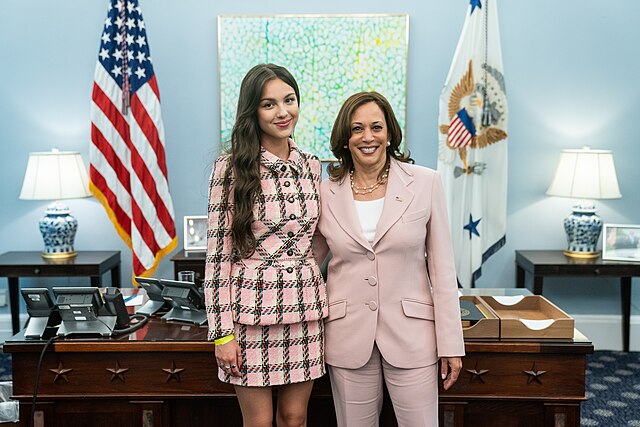In the 2024 campaign, one line was repeated over and over again: “Kamala Harris has built a broad coalition, from Taylor Swift to Dick Cheney.” Whether it was delivered in the smiling, jovial manner of Tim Walz or the smarmy face of Jimmy Kimmel, the message was clear–whatever secret weapon Trump had in his pockets, Kamala had star power. She had Beyonce, Bad Bunny, and Oprah stumping for her on the road; Trump had a singular red-faced UFC fighter ripping off his shirt.
Yet, this was ultimately ineffective. Trump not only won the Electoral College and the popular vote – he made gains in almost every conceivable demographic group in America. Despite the blatantly racist jokes made at Trump’s rally in Madison Square Garden, Republicans supposedly made a whopping 13.3% gain in Hispanic-majority counties, a 10.0% gain in Native-American majority counties, and a 2.7% gain in Black-majority counties. Even with the last-minute endorsements of high-profile artists like Jennifer Lopez, Bad Bunny, and Lin Manuel Miranda, Harris failed to maintain the diverse coalition that had backed Joe Biden in 2020. As the results poured in, one thing was clear: her sparkling, charismatic, beautiful group of Hollywood campaigners made no concrete difference.
Celebrity endorsements weren’t always a hopeless endeavor. High-profile celebrities have always been excellent fund-raisers, and Barack Obama would certainly credit Oprah for a slice of his victory in 2008. In the context of modern politics, however, entertainers and performers have been increasingly relegated to the side in their influence beyond their respective fields. With the rise of Spotify and other streaming platforms, people have increasingly diversified their listening patterns to various singers–diluting the sway a singular artist might hold. In Hollywood, the “death of the superstar” has meant that every “Tom Cruise” has been replaced with a combination of “Jacob Elordi, Nicholas Galzantine, and Tom Holland.” Even with celebrities with famously masculine and rural fan bases, such as Bruce Springsteen and Eminem, entreaties to their fans did not result in a rush of enthusiasm for Harris.
Worse than their ineffectiveness, the widespread support of Hollywood entertainers created a false sense of security. By all measures, Kamala Harris ran an excellent campaign. She made no major missteps, gaffes, or issues, and her rapid consolidation of the Democratic party was nothing short of breathtaking. Yet, her team’s complacency, many of whom were long-time Biden aides, were reassured by the outpouring of support from Hollywood celebrities whose views they mistakenly believed to be representative of their fans. Meanwhile, the presence of these incredibly famous entertainers at Harris’ rallies also played into the Democratic “elitist” archetype that Trump so flawlessly riffed off of. Entering the campaign, the message was clear to everyone involved: America was angry, America was anxious and America wanted a change. As voters watched millionaires dance and sing on stage, the message that Harris wanted to change the system for the better was not only unsupported, it was actively weakened.
Trump’s rallies, with the exception of Elon Musk’s pale stomach, were sparsely attended by celebrity endorsers. But this didn’t damage his appeal: Trump himself is in essence, an entertainer. He may bluster and blunder, joke and jape, mock and mimic–yet no one can call him boring. The fact that no mainstream celebrities or politicians actively supported him only reinforced his narrative that he was the singular person who represented America’s desire for retribution. His media game also reflected this: rather than attending another presidential debate that would reveal his instability and derangement, he went on more obscure media routes such as podcasts with Joe Rogan or a shift at McDonald’s. He knew his audience, and he knew exactly how to reach that audience.
Ultimately, what doomed Harris’ campaign was the short election window she was afforded. Biden’s late dropout meant that she had to rapidly introduce herself to the American electorate while attacking her opponent at the same time. This meant that Harris’ team was forced to use celebrity spokespeople to send her message – not understanding that today’s media landscape has grown more dependent on podcasts, internet virality, and social media influencers than old-fashioned campaigning. Harris’ stunning loss to a fascist, authoritarian figure who promises retribution and destruction for his political opponents needs to become a critical moment of self-reflection for Democrats: to be a party for the “working class,” they need to start looking like one.
Contact the editor(s) responsible for this story: Caitlin Donovan




